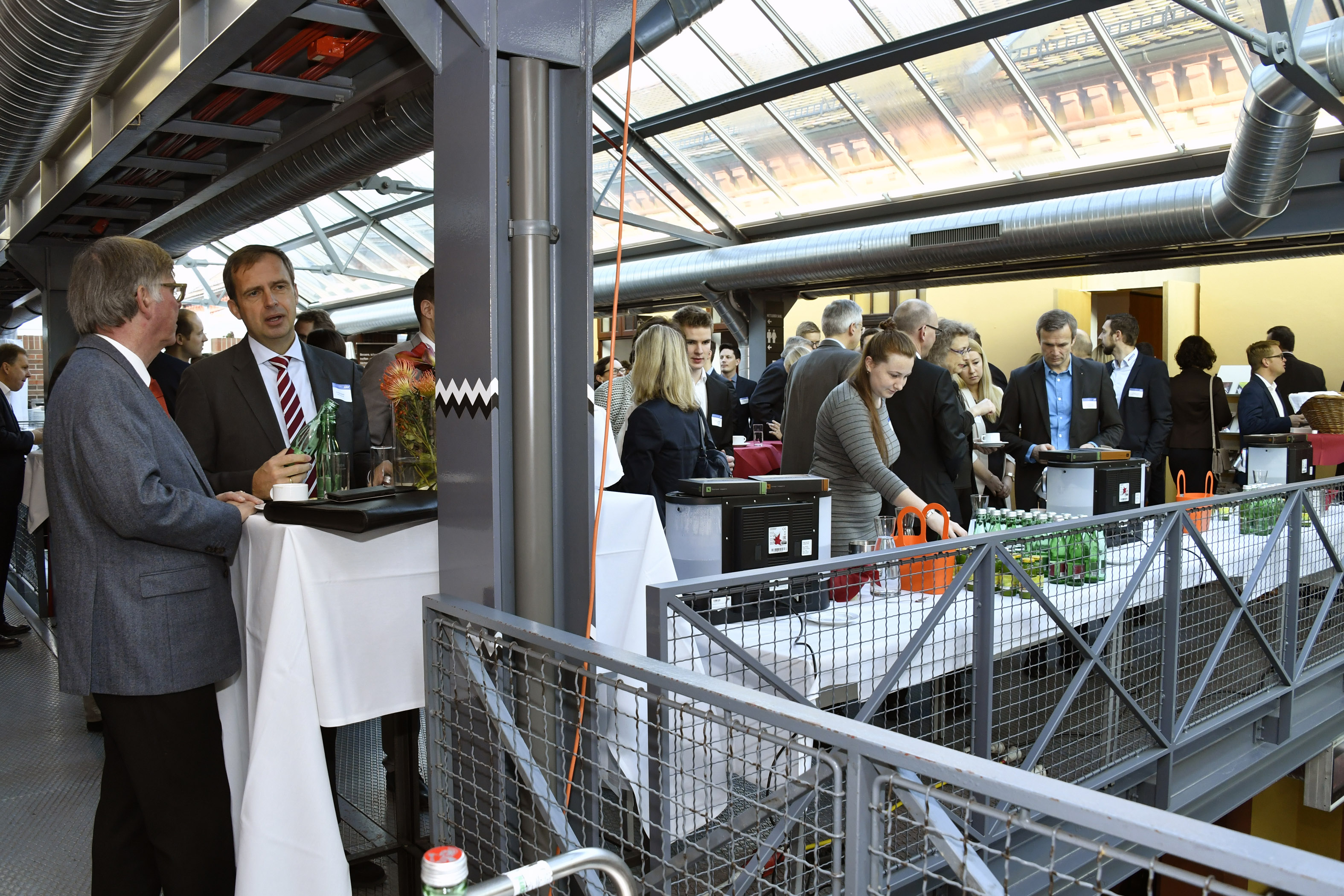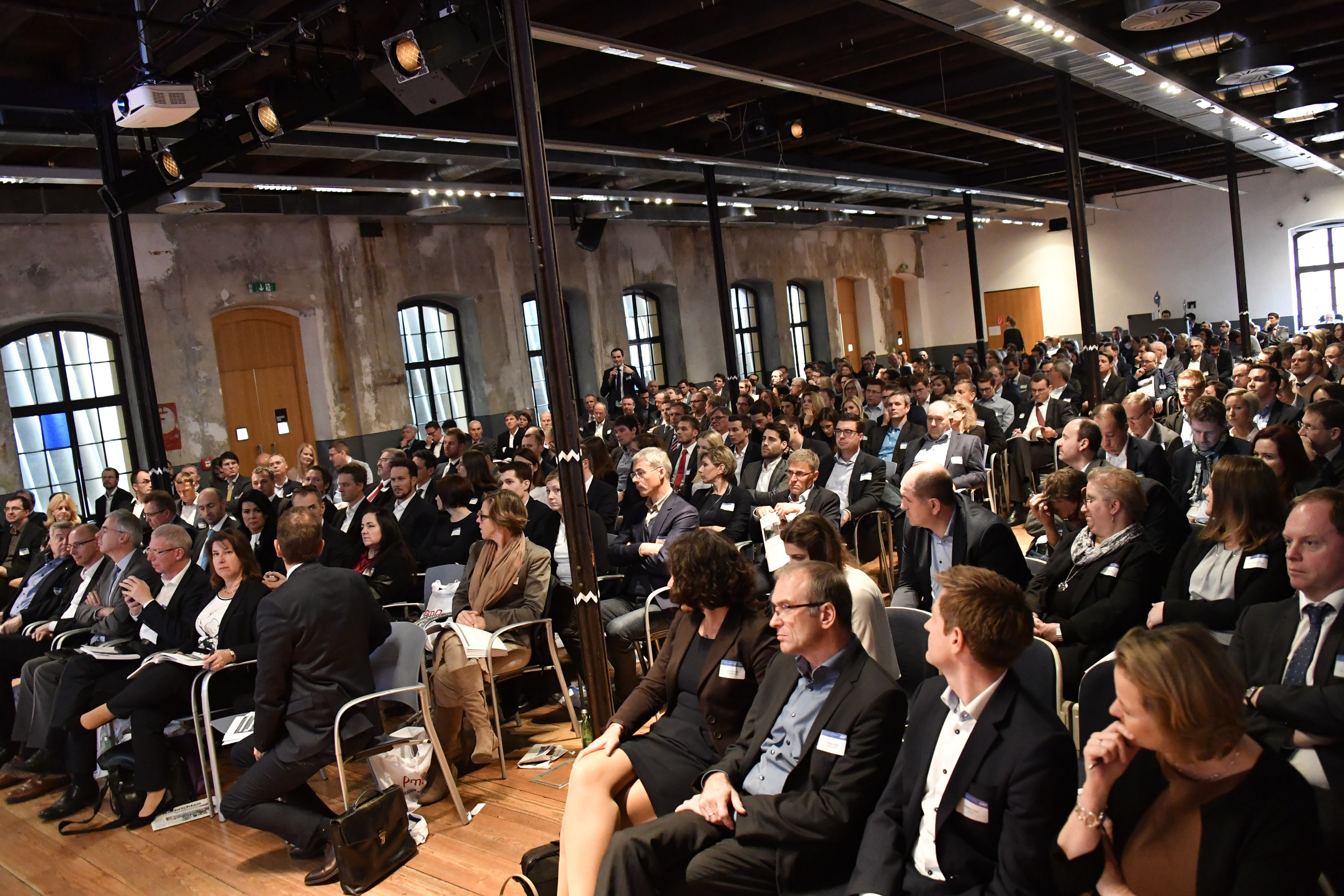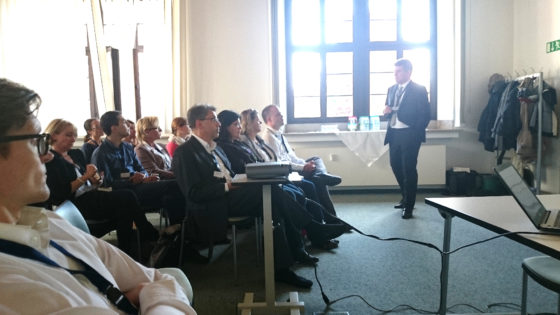For the 16th time the “Controlling Insights Steyr – CIS 2017” started on the morning of November 24. On behalf of the Austrian work groups of the International Association of Controllers (ICV), FH-Prof. Dr. Heimo Losbichler, Deputy ICV Chairman, Chairman of the International Group of Controlling (IGC), Head of CRF – Controlling, Accounting and Financial Management, FH Upper Austria, Faculty of Management, Steyr, welcomed over 350 guests. “Exactly one month before Christmas I received a gift today”, Prof. Losbichler was pleased, “a full CIS 2017!”
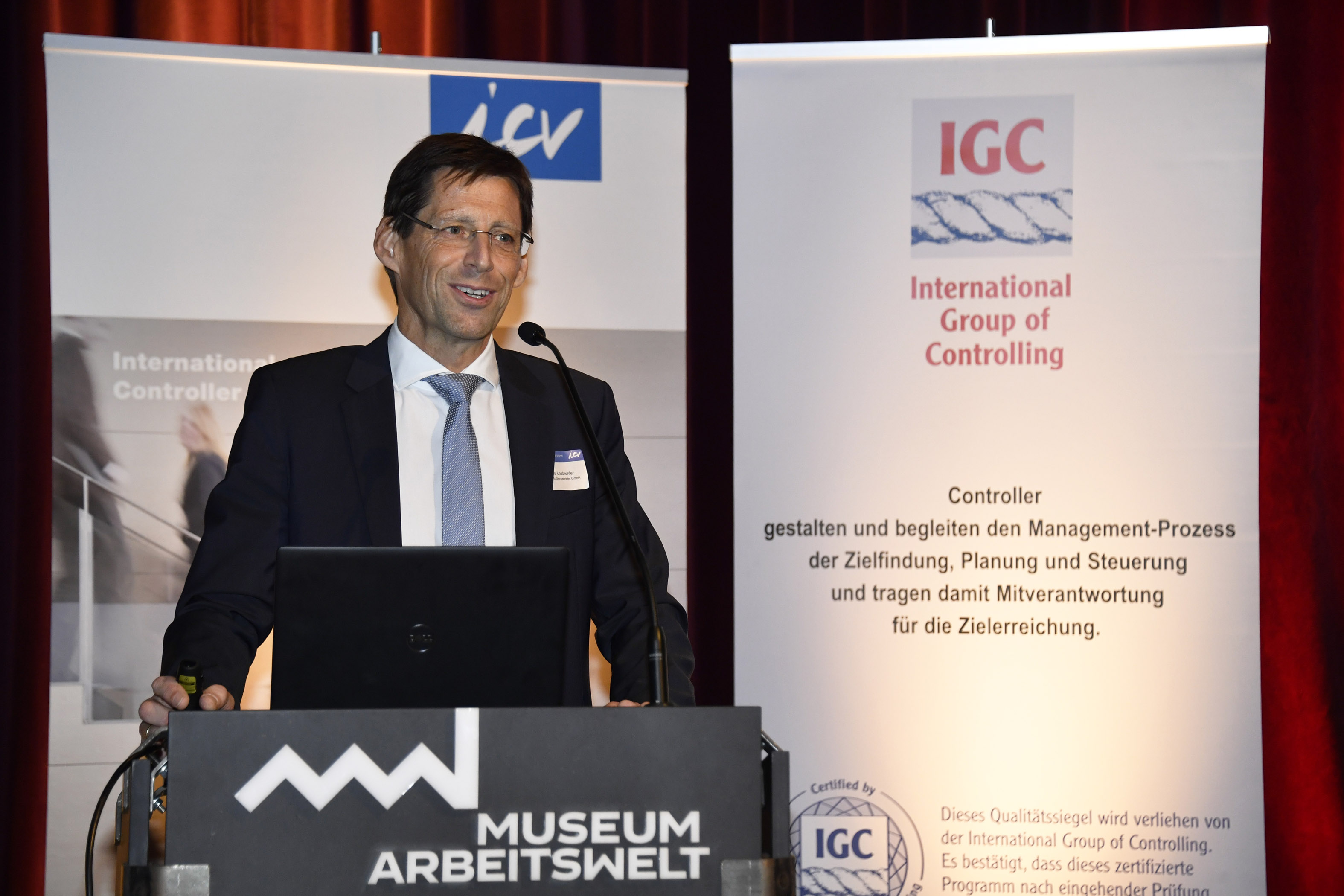
He used his opening speech for an impressive response to swan songs, that in ten years there would be no more controllers due to digitalization. Using the example of the “Super Shuttle” service, the speaker demonstrated that the consistently digitalized, transparent process chain gives controllers “paradisiacal conditions”. – At the same time Losbichler warned: If controllers do not deal with digitalization issues, the future may be “very difficult” for them.
He also had a reading recommendation for the CIS guests. In the conference materials, they could find the recently published IGC publication “Controlling Process Model 2.0” with updates in front of digitalization.
High Speed at the Controlling Conference Steyr
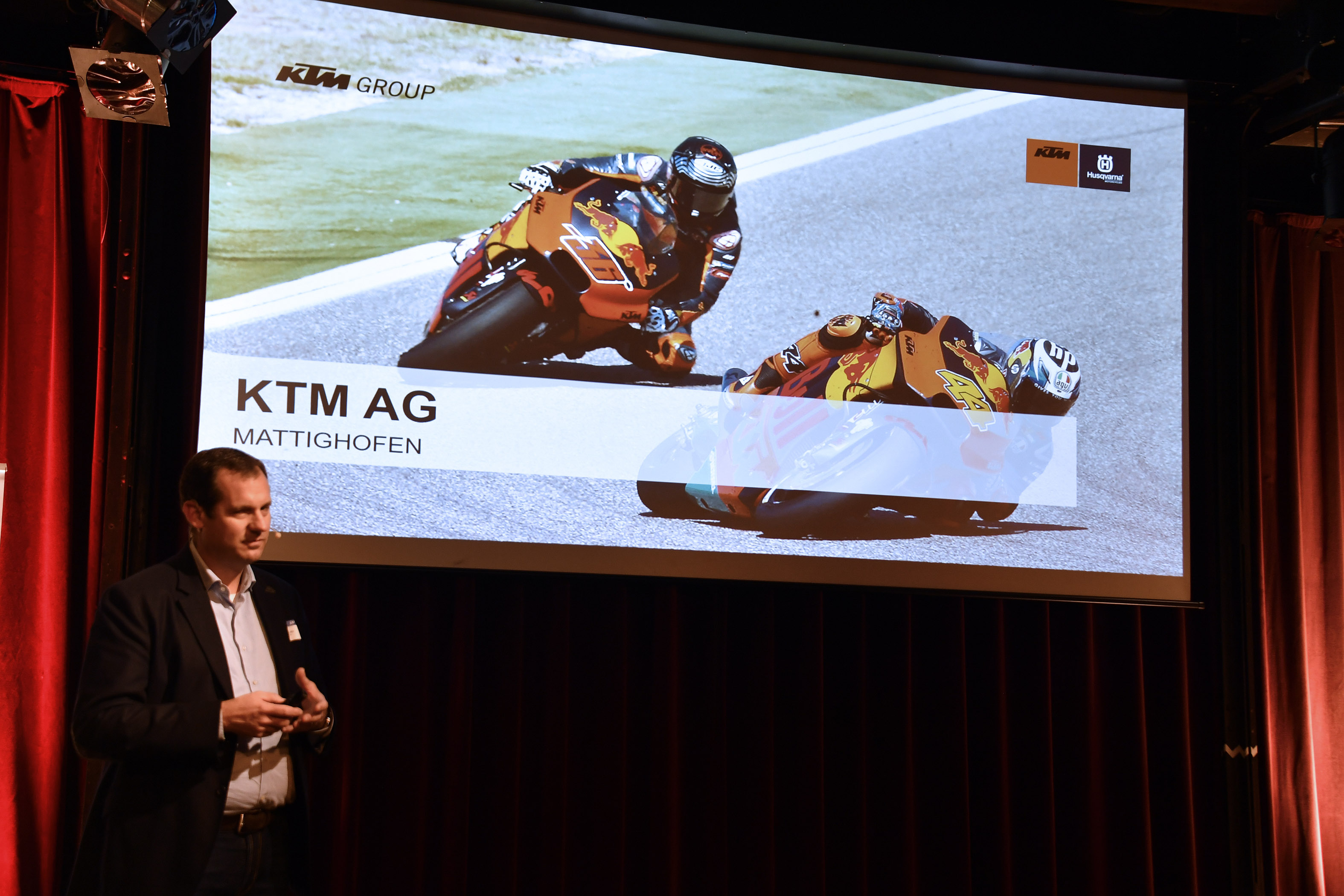
The keynote speech of CIS 2017 belonged to Mag. Viktor Sigl, MBA, Member of the Board (Finance, HR) KTM AG, Mattighofen. The speech was entitled “Current challenges to the Chief Financial Officer and controlling in the growth and racing environment”. Of course, also at KTM, the fact that constant growth and constant changes in the market and in companies cause constant changes in the system, means instability and uncertainty. This creates special challenges for corporate management, especially in the digital environment. In the end, according to Sigl, it’s the economic result what counts. Sigl explained key figures in his company: sales, earnings, working capital. The speaker is convinced about the key figures: “Less is more; but in any case you have to make it clear, how these numbers come about in the company. “KTM CFO Sigl cited a saying from the racing world, which affects certainly also considerations on the role of the controller: “The first look in the rear-view mirror is the moment from which you can no longer win.”
The fragment of the keynote about the “tension between emotion and return in racing” was extremely interesting. “How can you make controlling in racing without being seen as a spoiler?”, thought Sigl loudly. “Whether racing events or glossy advertising – it all costs a lot of money.” The right balance must be found here: “In racing, where it’s all about emotion, no one listens, if you ask what it does cost and what we have earned with it.” There would be no direct link (linear causality) between 290 titles worldwide and financial results. “This is extremely difficult to measure,” says Sigl. “But clearly there is a connection between a freshly won prominent title and increasing sales figures.”
In his keynote, Viktor Sigl finally focused on reporting and analysis requirements. “Research and development expenditures are relatively easy to illustrate. But the simulation (predictive) of future costs and revenues by the end of the product cycle from ongoing research projects and developments is highly demanding.”
“What’s the secret of KTM’s success?”, asked conference moderator Prof. Losbichler afterwards. Sigl emphasized: “quick decisions” and a “lived error culture” at KTM.
SAP HANA project at Zumtobel Group AG
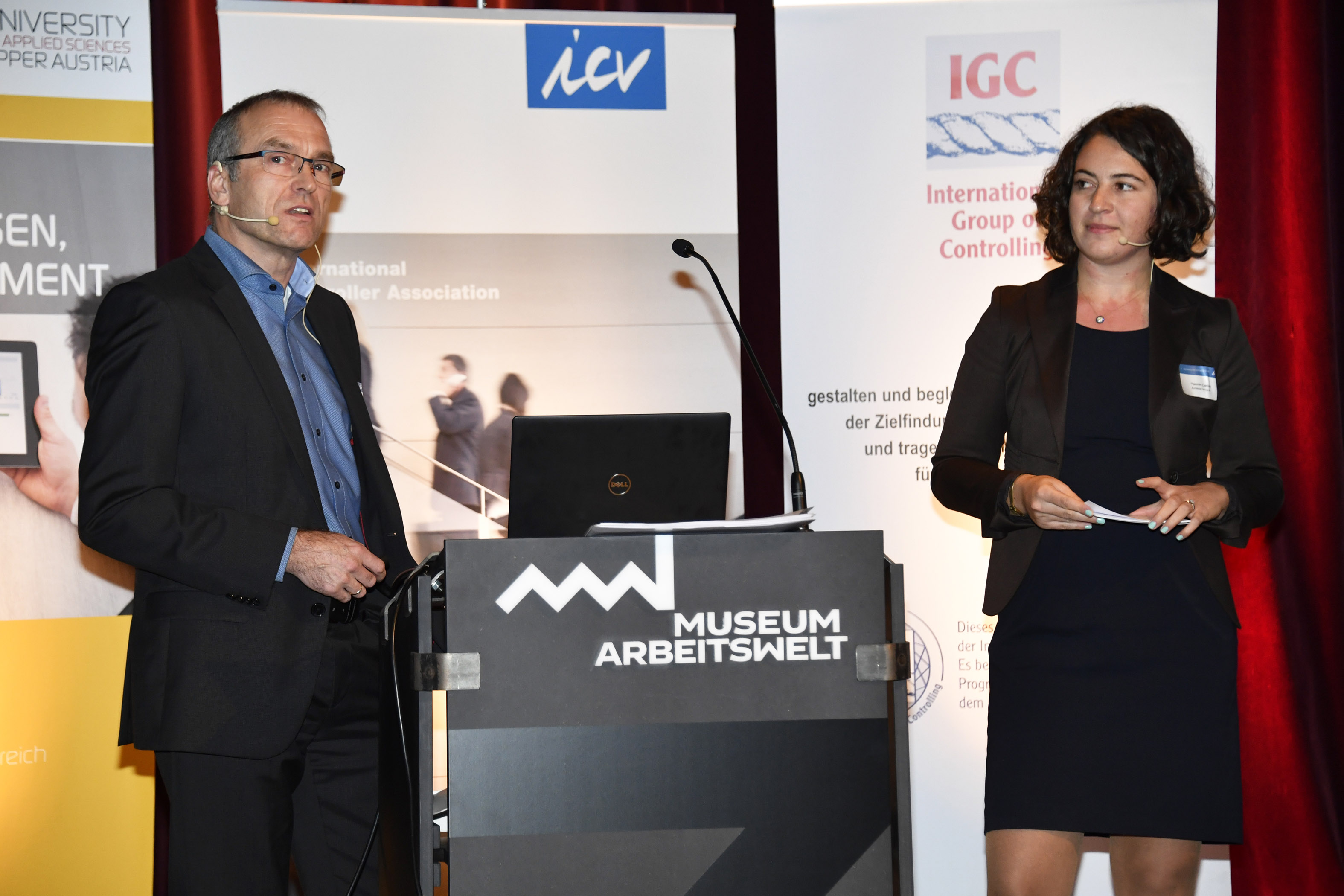
In the next presentation, Holger Schnabel, Vice President of Corporate Controlling, Insurance & Risk Management, and Yasmin Camara, Project Manager Corporate Controlling, Zumtobel Group AG, Dornbirn presented the digitalization of key processes at Zumtobel Group AG on the example of sales and financial planning. The presentation was entitled “Innovative sales and financial planning with SAP BPC Embedded on HANA”. They presented the integrative planning tool as a basic prerequisite for a better plan quality, showed supporting the planning process with an intelligent system. The speech showed the shortening of the planning phase as well as complexity reductions. Finally, lessons learned by Zumtobel Group AG were presented. – Deep “insights” was not a glossy presentation, it also showed the lowlands of the project and setbacks. Nevertheless, the summary was: “We are sure that we took the right step.” The CIS guests made extensive use of the opportunity to ask questions in plenary.
Planning & management at KAPSCH – Cost controlling in restructuring at MAN Truck & Bus
With a field report “The planning and management system of the Kapsch Group”, #cis2017controlling in Steyr continued after a very communicative first coffee break.
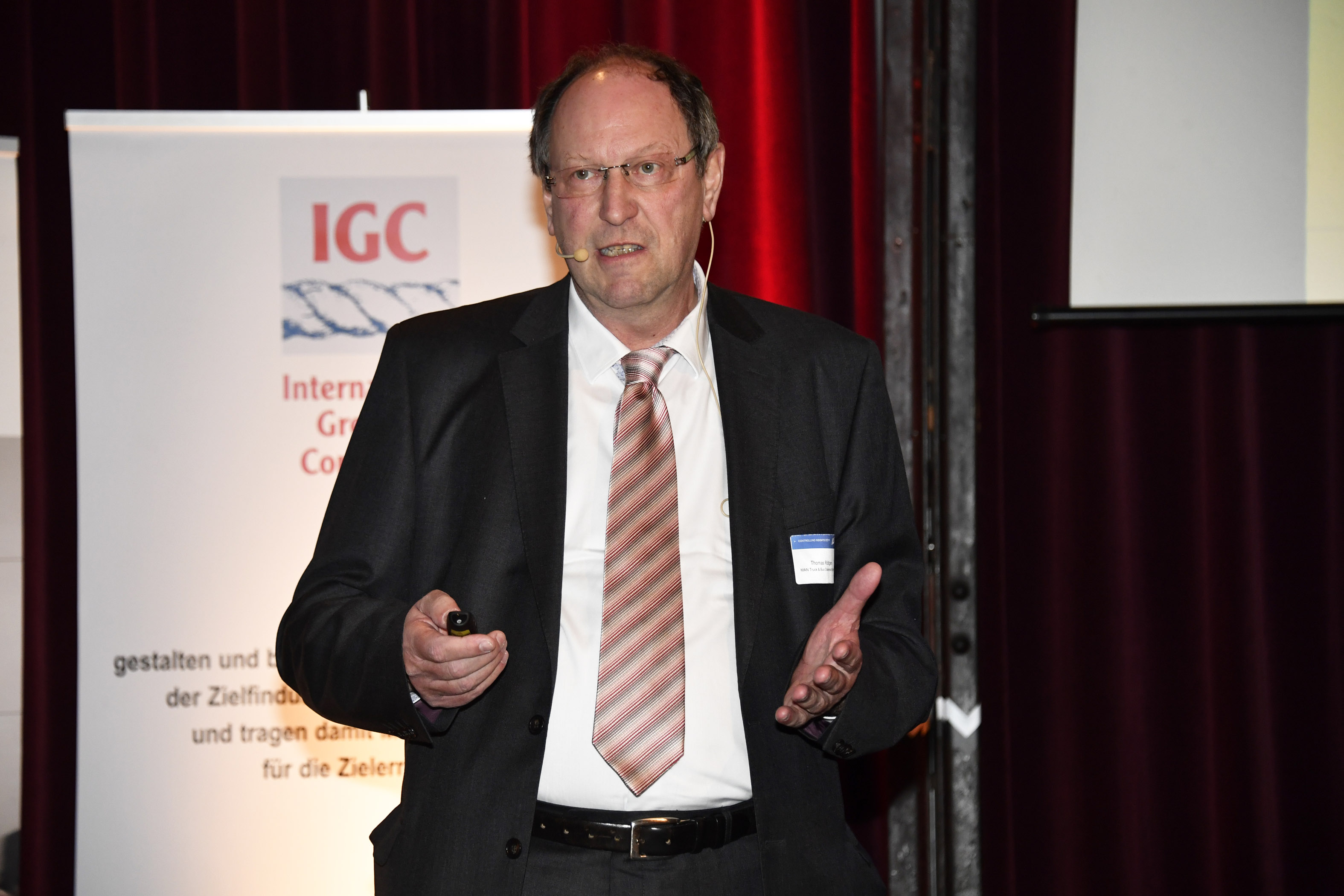
Dr. Franz Semmernegg, Chairman of the Board Kapsch BusinessCom AG, Vienna, showed how the 125-year-old traditional technology company is managed. Semmernegg granted “insights” to key elements of the group’s strategic planning and budgeting: acquisitions, divestiture of the group, research and development, portfolio analysis (“product pipeline must be well filled”), strategic planning of market entry (the most important related issues), in the development to global player (Kapsch: “from system integrator to operator”), in the budgeting process. Dr. Ing. Semmernegg talked about “key figures and reporting”: sales, contribution margin 1, financial planning, headcount and “EBIT adjusted”, EBIT margin (adjusted), net debt, balance sheet total and equity ratio, reporting of existing business… Dr. Ing. Semmernegg was also dedicated to the topic of organization and responsibility. He described the role of the CFO as the “sparring partner for the CEO”. The speaker confessed in his summary: “I like numbers. And I have always been very interested in the business. You have to be familiar with both. That’s a prerequisite to be able to talk to people in any field at all.”
Conference moderator Prof. Losbichler honored the lecture as “profound, with an ironic touch”, showing a strong strategic character.
Cost controlling in restructuring at MAN Truck & Bus
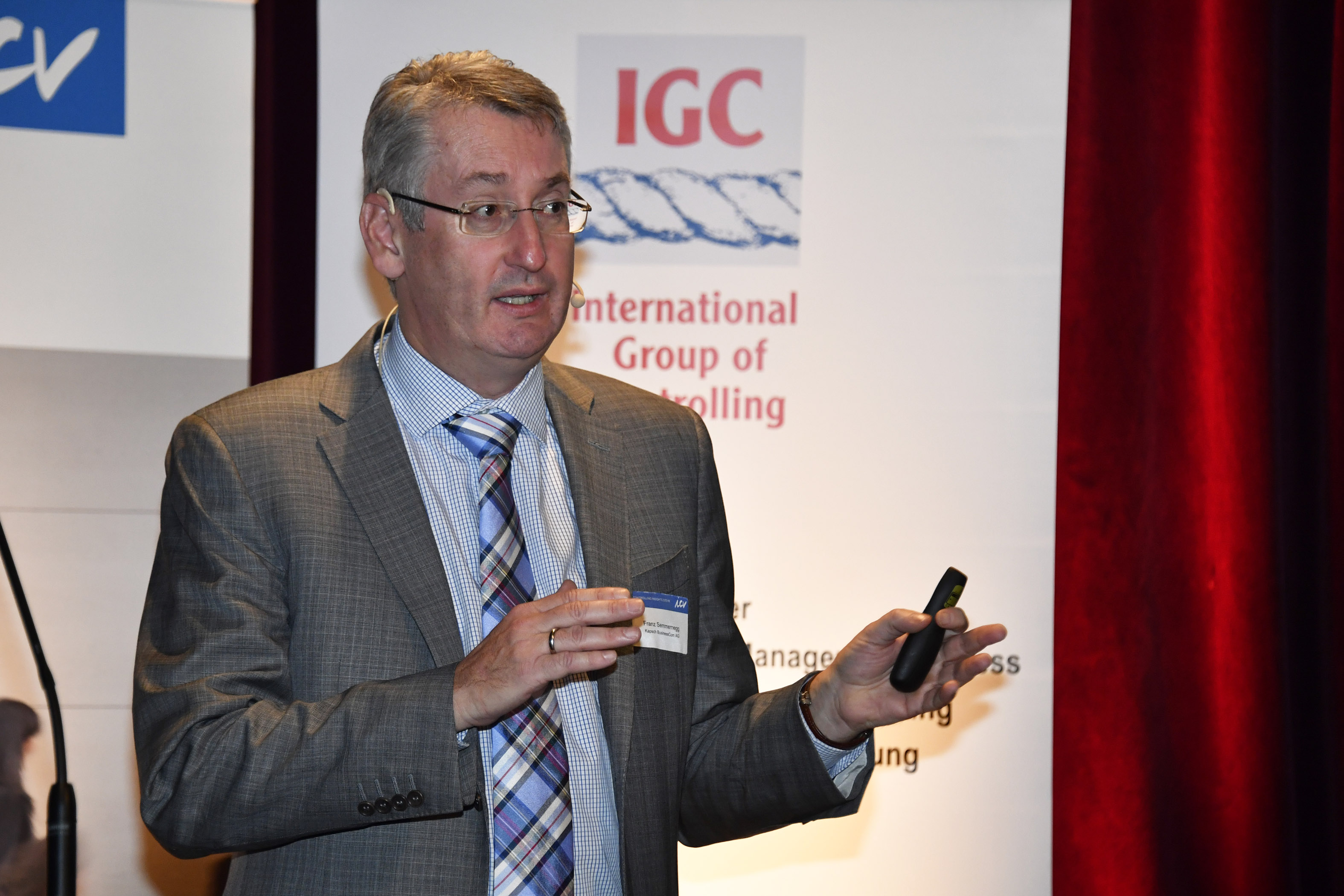
The lecture given by Thomas Röttgen, Managing Director of Finance, MAN Truck & Bus Austria GesmbH, Steyr, “Cost controlling in restructuring” provided deep insights. Conference moderator Prof. Losbichler pointed out a very special situation of the speaker: He had developed the restructuring process at the headquarters – and then had to implement this as the operational manager.
Röttgen introduced his company, then went into the starting position (utilization, earnings situation and expectation). He openly described the various problems, such as the relationship between corporate interests and participation (“Every location was affected”). According to Röttgen, the focus in the restructuring project had to be on e.g. involvement of co-determination, compliance with an “industrial logic”, the conclusion of agreements with different locations, the release of employees only by mutual consent as well as a central project management for coordination.
In his lecture, he then devoted himself to planning from the point of view of the “centralist” and described implementation as well as current status. Röttgen sumed up the prerequisites for a successful restructuring: Positive communication of milestones in words and pictures to employees; Awareness of project and cost shifts; Regular jour fixe appointments at management level; Keeping an eye on the whole company; Positive involvement of co-determination; Successful milestones have to be celebrated.
Deep real insights also in this lecture of the “Controlling Insights Steyr”!
Speech “Digital business models” followed talk on the EU Data Protection Regulation
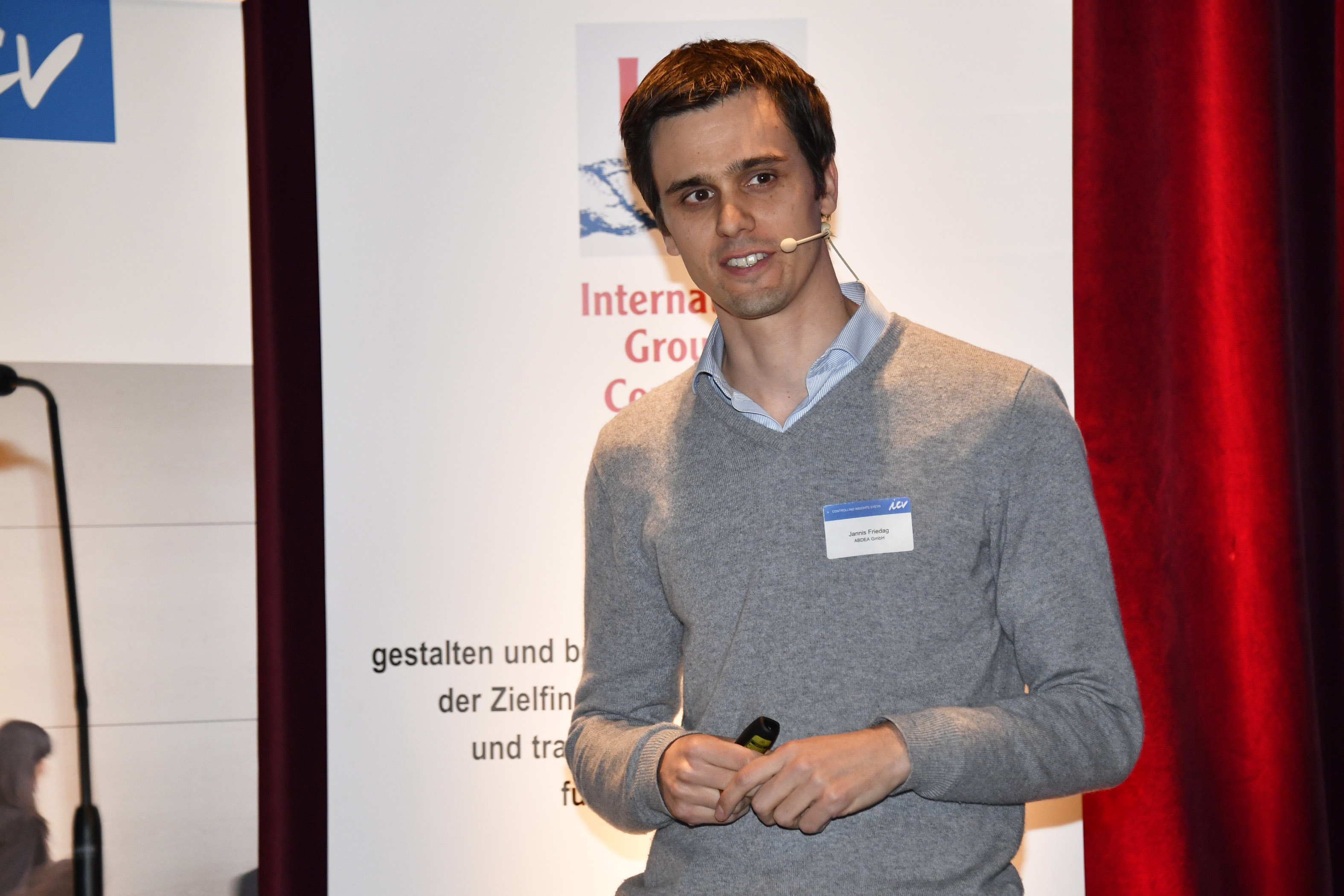
Then spoke Jannis Friedag, a young speaker of the CIS who has been in the Berlin startup scene for more than ten years; initially as a consultant, then as a controller at Europe’s largest online optician Mister Spex, now managing director of ABDEA GmbH, Berlin. At the International Association of Controllers (ICV) together with Dr. med. Jörg Engelbergs, VP Controlling at Zalando SE, he leads the expert work group “Start-up Controlling”. Jannis Friedag talked about “controlling digital business models”.
He provided insights on questions such as “How much data do the leading companies have today?” The digital business model often allows the capture of all essential data. It is about evaluating this data – to report and analyze – and above all, it is about using the data to generate additional sales. Here was a great opportunity for the data specialist controller. Friedag showed the topic Predictive Analytics – Demand and Reality on a practical example in which the sales rates of shorts have been increased. There were also self-critical sounds: “We have to think about whether we have to measure everything and collect data for everything.” Jannis Friedag is convinced: “Controlling is facing exciting times.” He justified his thesis: Firstly, he sees “data as an essential driver in the digital business” and says: “New analysis methods and tools combined with data availability enable completely new optimizations.”
EU-GDPR: “Punishment – not a good motivation”
The lecture by Jannis Friedag was the introducing for the discussion led by the business editor Susanne Dickstein, Oberösterreichische Nachrichten, with Mag. Andreas Obermüller, Managing Director of the VACE Group. Theme: “Controlling and the new EU General Data Protection Regulation”. Highly explosive, up-to-the-minute questions were raised: What will be possible and / or not allowed in controlling as of May 2018 with the new regulation? Where is help to implement the technical and organizational requirements of the EU GDPR?
Obermöller took an interesting approach: “Penal prevention is not a good motivation for the implementation of the General Data Protection Regulation.” One should see the opportunities involved; e.g. with the implementation of the new regulation, it would be possible to build up valuable confidence in the market. Why not?: “Data protection as a distinguishing feature!” One of many topics for discussion in the course of the conversation is the “anonymization of data”: Profiling and scoring should therefore no longer be possible, as I understand it…
Good that this important topic could be found on the CIS agenda!
Can corporate controlling contribute to the digitalization of the business?
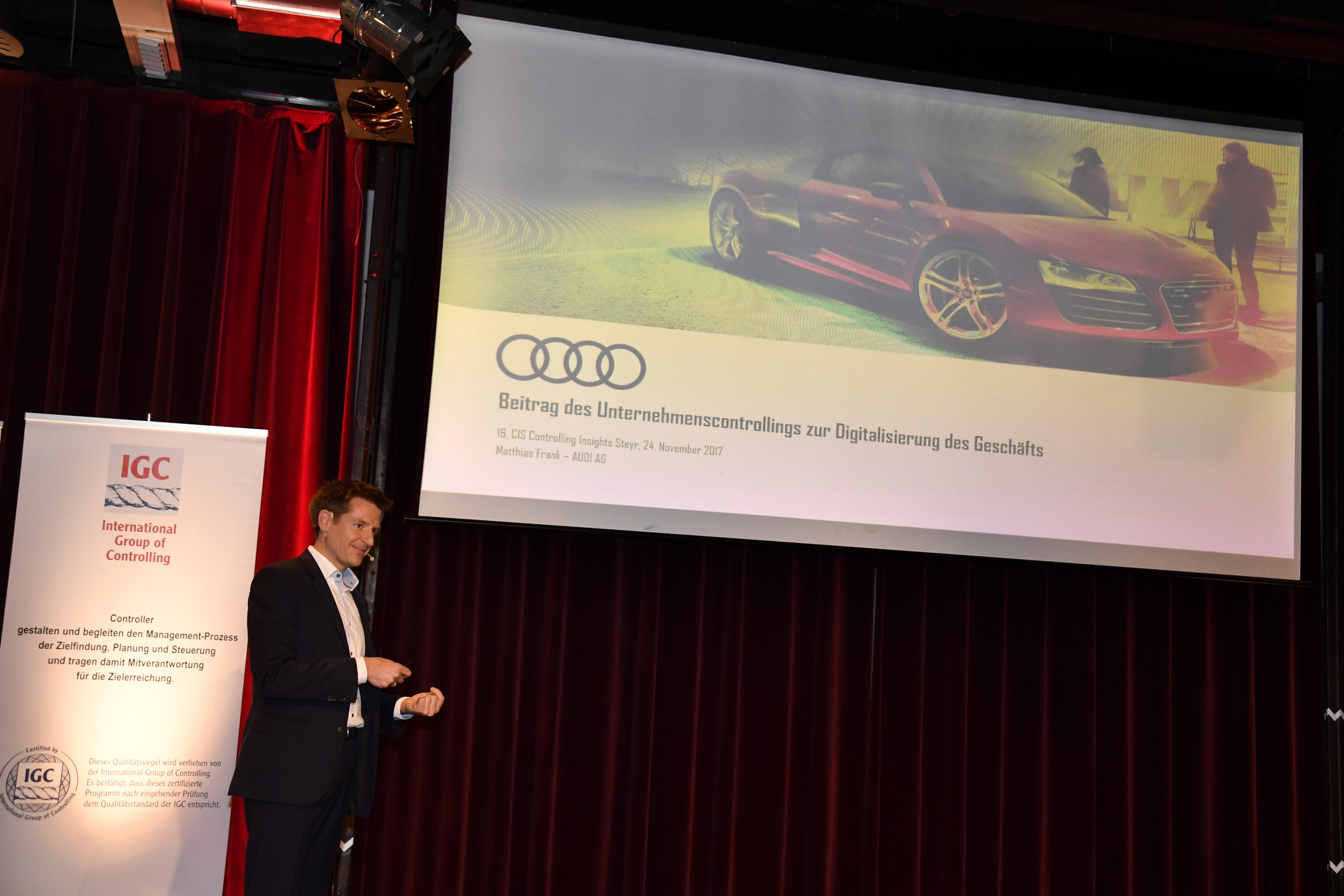
Can corporate controlling contribute to the digitalization of the business? And how does it work? – Matthias Frank, Head of Business Analytics, Valuation of Volumes / Foreign Exchange, Audi AG, Ingolstadt, spoke at the CIS 2017 in Steyr on the topic “Contribution of corporate controlling to the digitalization of business”. The lecture from a company that produces “very tangible products”, as conference moderator Prof. Losbichler explained in the introduction, summarized the CIS focus “digitalization and controlling”.
Digitalization changes not only the product, but also the working world, said Matthias Frank. Employer attractiveness is today associated with startup elements in the organization, with new values as well as mobile work. The speech focused then on the process “from controller to data scientist”: But who is a data scientist and how can you get such an expert? How to answer these questions and find the right people “in their worlds”, their networks, and ultimately to win them over, is a challenge even for well-known companies.
“Broadening the horizons” – systematic, content-related, personal – was a recurrent theme throughout the speech. Exciting: M. Frank granted “insights” to the subject of machine learning in Audi corporate controlling. Despite all the fascination, the speaker sumed up again: “Effective use appears,” says Frank, “in the intersection of competences – data volume – data quality”. So he devoted himself e.g. to the “crux with the raw material data” and explained his ideas for “digital forecast”.
Matthias Frank summarized the contribution of corporate controlling to digitalizing the business: Consistent resource management and the development of new employee skills in controlling are necessary as a fundamental basis. Machine learning / artificial intelligence is also highly relevant for the financial sector. Data quality is essential, and data governance is the future task of finance for the entire enterprise. A large number of other new topics for controlling are emerging and for this we will need many controllers with the required skills.
A most interesting, lively talk!
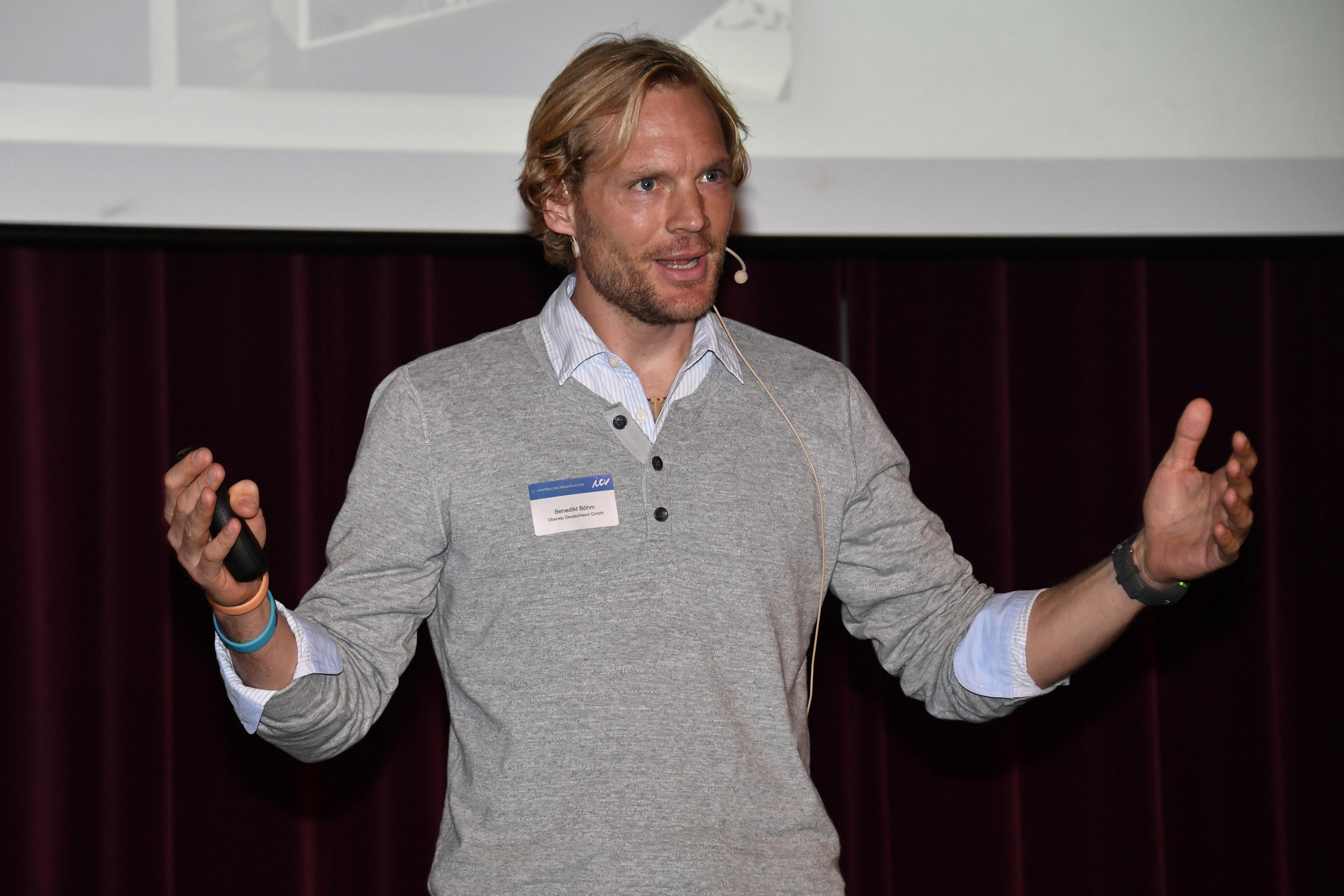
Top athletes traditionally hold the final presentation of the “Austrian Controlling Festival”, CIS in Steyr. This year the top athlete is also a top manager: Benedikt Böhm, managing director of Dynafit and extreme mountaineer, talked about “top performance – success principles to achieve what’s seemingly impossible”. Böhm has successfully developed the brand Dynafit from insolvency as a global market leader. In his “second life” he is an extreme mountaineer and climbs 8,000 not only without oxygen and foreign aid, but with uncompromising speed to minimize his risk in the death zone. In his lecture, he took the audience into a unimaginable, breathtaking mountain world. In doing so, he built the bridge to the business world.
In the afternoon the conference moderator Prof. Dr. med. Heimo Losbichler closed the “16th Controlling Insights Steyr – CIS 2017”. A good tip: remember the CIS 2018! It takes place on November 23, 2018 in Steyr.
